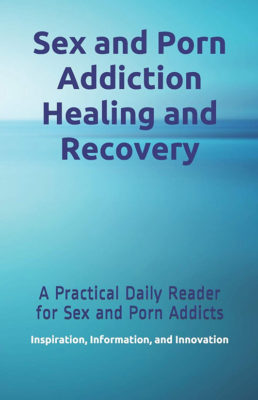 Scott Brassart
Scott Brassart
Many of the questions I hear from recovering sex and porn addicts, whether I’m co-hosting a webinar, facilitating a drop-in discussion group, or teaching an online workgroup for recovering sex or porn addicts, are about healthy sexuality. What is healthy sexuality? What does it look like? Can I engage in it? Will I enjoy it? Much of the time, the recovering addicts who pose these questions are worried that because they are now in a process of healing from sex, porn, or paired substance/sex addiction, they will never again be able to enjoy sexual activity.
Happily, this is not the case. Healthy sexuality can be defined, though it looks different for each addict, and it very definitely can be enjoyed. In fact, many recovering sex and porn addicts say they find “sober sex” far more rewarding than even the best versions of “addiction sex.” No, sober sex typically does not provide the neurobiological jolt of adrenaline and dopamine that addicts get with their addiction, but other neurochemical rewards (in particular, the hit of serotonin and oxytocin that we get from feelings of intimate connection) can more than make up for this loss.
To enjoy sober sex, of course, an addict must first establish and maintain sobriety. Typically, this sobriety needs to be in place for at least six months so the reward center of the brain can heal from the damage wrought by active addiction. When sexual sobriety is solidly in place and the reward center of the brain has had a chance to reset to something approaching a natural baseline, recovering sex and porn addicts can start to reintegrate healthy sexual behavior into their lives.
At this point, recovering addicts have:
- Identified and changed their problematic sexual behavior patterns (their cycle of addiction).
- Learned to manage their feelings in healthy ways, rather than always turning to an addictive behavior.
- Identified their unresolved trauma and begun the process of healing that trauma.
Now they are ready to examine the intensity their addiction provided, and how they used that intensity to escape rather than to connect. Often, they will have to grieve the loss of that intensity as they move forward into a sober sex life. More importantly, they must not search for or try to re-create the intensity – the dopamine/adrenaline rush – of their addictive behaviors. To this end, they must:
- Avoid sexual activity (including masturbation) that is triggered by or that rewards addictive thoughts, fantasies, and desires.
- Avoid sexual fantasies that trigger addictive thoughts or desires.
- Avoid risky people (former acting out partners), places (certain neighborhoods, bars, etc.), and behaviors (porn, triggering movies or TV shows, etc.)
- Abstain from other addictive behaviors, such as drinking, drugging, and smoking – because the adrenaline/dopamine hit these behaviors provide prevents healing (normalization to baseline) of the brain’s reward system. Nicotine is especially harmful in this regard.
At times, recovering sex and porn addicts find that without the intensity of their active addiction, their sexual desire goes dormant. This can be distressing, especially to males who suddenly find themselves suffering from erectile dysfunction. (This is particularly common when porn is a significant part of the addiction.) In such cases, I suggest that recovering addicts view this as a blessing in disguise – a brief respite from the pull of active addiction. I also let them know that is a common stage of recovery and that it will pass soon enough – as soon as the reward center of their brain is able to reset, which, as stated earlier, typically occurs with six months or more of solid recovery.
When sobriety has been established and maintained and the rewards center of the brain has had a chance to reset, recovering sex, porn, and substance/sex addicts can start to develop healthy emotional intimacy with themselves, their partner (if they have one), and others. As they do so, they should focus primarily on building vulnerability and intimacy (emotional connection) rather than intensity. Over time, as they become better at intimacy, they can slowly reintroduce healthy sexual behaviors by focusing on the “seven dimensions of healthy sexuality,” which I will discuss in my next post to this site.
* * * * * * * * * *
If you or someone you care about is struggling with sex, porn, or substance/sex addiction, help is available. Seeking Integrity offers inpatient treatment for sex, porn, and substance/sex addicts, as well as low-cost online workgroups. At the same time, SexandRelationshipHealing.com offers a variety of free webinars and drop-in discussion groups, podcasts, and more.

